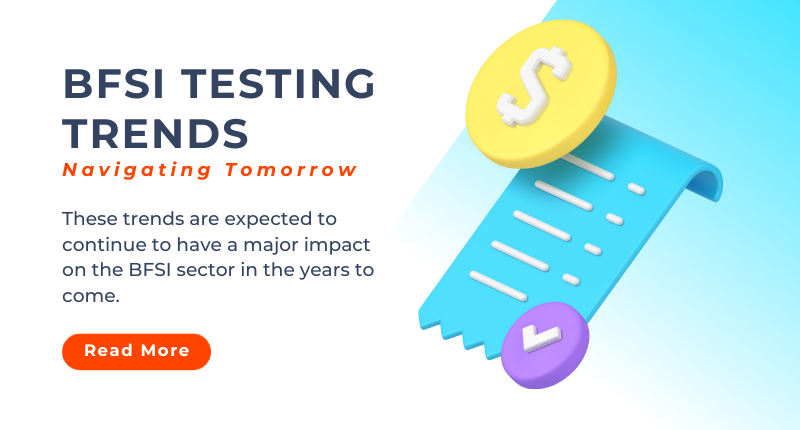The banking and financial services industry stands as one of the most highly regulated and competitive sectors globally. Consequently, BFSI organizations continually seek ways to enhance efficiency, security, and compliance. Software testing plays a pivotal role in achieving these objectives.
In recent years, several software testing trends have significantly impacted the BFSI sector:
- Test Automation: Automation reduces testing time and costs while improving accuracy and coverage.
- AI and ML: Artificial Intelligence and Machine Learning offer innovative testing solutions. AI-powered chatbots, for instance, test customer-facing applications’ performance and functionality.
- Shift-Left Testing: Integrating testing early in the software development lifecycle identifies and resolves bugs promptly, saving time and money.
- Security Testing: Crucial for BFSI handling vast amounts of sensitive customer data, security testing identifies and addresses vulnerabilities.
These trends are expected to persist and evolve, with new technologies like blockchain and quantum computing shaping the sector.
Navigating the Future of BFSI Testing:
BFSI organizations must adapt their testing practices:
- Embrace Test Automation: Vital for digital transformation, automation enhances testing efficiency and effectiveness.
- Adopt AI and ML: These technologies foster innovative testing solutions, enhancing overall testing practices.
- Implement Shift-Left Testing: Identifying issues early in development enhances software quality and reduces costs.
- Invest in Security Testing: Protecting customer data is paramount. Robust security measures and regular testing ensure data safety.
Additionally, BFSI organizations must grapple with challenges such as the rise of open-source software, emerging technologies, and heightened data security concerns. Staying abreast of these trends equips BFSI entities to ensure their software remains high-quality, secure, and compliant with regulations.




